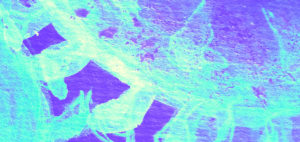How Hormonal Contraceptives Interfere with Mate Selection

A friend of mine had been seeing this beautiful girl romantically for a year until, seemingly out of the blue, she broke up with him. The reason? She said that he “smelled funny.” He hadn’t tried out a different aftershave; he wasn’t eating any different; and he certainly wasn’t showering any less. Out of all the bizarre excuses she could have chosen, my friend thought, how’d she come up with that? And after a year of seeing her, no less! I asked my friend if she was using oral contraceptives and he said she was—until a few weeks before when she stopped. It all made sense (no pun intended). Oral contraceptives changed the woman’s attraction. Once she was off of the drug, she wasn’t attracted to him anymore.
There are many components that attract people to each other, from looks to behavior to scent, but one thing is clear in study after study: female fertility has a dramatic impact on who women are attracted to and how attractive they are to others.
Studies have shown that women are attracted to more masculine faces (square jaws, small eyes, prominent brow ridges) when they’re fertile. At the same time, women naturally become more attractive to others during peak fertility. Their cheeks are more flushed, their lips fuller, and eyes wider. One study showed that female strippers earned twice as much in tips doing lap dances while they were fertile.
But physical appearance isn’t the only thing women can detect when considering a mate. One of the important components of the immune system is the major histocompatibility complex (MHC) and it turns out that women (and men) can detect a potential mate’s MHC through body odor and pheromones. Most people have probably heard of the study in which women smelled several T-shirts, each of which had been slept in by a different man. The women were asked to rank the attractiveness of each man’s shirt and interestingly, they consistently ranked those with MHC genes that differed most from their own as most attractive. In other words, women are more attracted to the smell of men with complementary genetics.
So, naturally, fertile women are more attractive and attracted to men who will presumably make for more attractive and healthy offspring. The problem is that hormonal contraception changes all that. Contracepting women like less masculine males and do not appear more attractive to men. Strippers who were taking the pill did not see a spike in tips during their cycle. And perhaps most importantly, contracepting women were more attracted to the scent of men with similar MHC genes.
The takeaway from this is clear. In modern society, mate selection happens most often while a woman is contracepting. If the woman decides to go off the pill, she may find herself unattracted to her mate and worse, may put her children at an immunological disadvantage. Additionally, while off the pill, she may be more attracted to other men during fertility, increasing the likelihood of infidelity, or worse, she may find herself not attracted to her spouse anymore.








